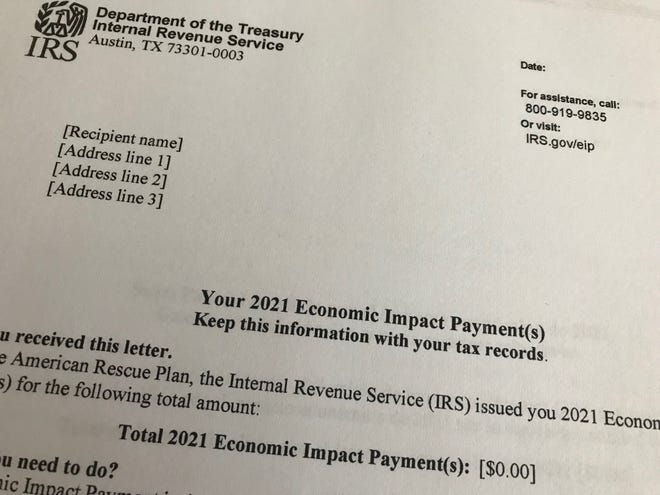
>> YOU'RE WATCHING WCVB NEWSCENTERE FIV AT 5:30. >> COVID-19 CASES ARE DECLINING THIS WEEK IN ALL BUT ONE OF THE 50 STATES. HERE TO ANSWER YOUR QUESONS ISTI DR. ALI RAJA, THE EXECUTIVE VICE CHAIR FOR EMERGENCY MEDICI ANET MASS GENERAL HOSPIL. >> THAT'S OBVIOUSLY ENCOURAGING NEWS FOR EVERYONE EXCEPT MAYBE RESIDENTS OF ALABAMA, WHICH IS THE ONLY STATE SEEING NUMBERS INCREASE. SO AT LEAST AROUND HERE, WHEN WILL YOU BE READY TO SAY, THE CRISIS IS OVER? AND IT'S TIME TO MOVE ON?. >> THAT'S GREATA QUESTION. I LOVE THAT CASES AROUND THE COUNTRY ARE GNGOI DOWN RIGHT NOW, BUT WE CAN'T JUST LOOK AT CASE COUNTS. WE'VE ALSO GOT TO LOOK AT TRANSMSIISON AND HOSPITALIZATION RATES AND UNFORTUNATELY, THE CDC ILSTL YSSA THAT 99% OF THE COUNTRY STILL HAS HIGH RATES OF TRANSMISSI AONND OUR HOSPITALIZATION RATES WHILE THEY'RE COMING DOWN, THEY'RE STILL JUST AS HHIG AS THEY WERE DUNG THERI PEAK IN 2021. SO WE'VE STILL GOT A WSAY TO GO, BUT WE'RE DEFINITELY HEADED IN THE RIGHT DIRECTION. >> LET'S TALK ABOUT THE VACCINATION RATES. ONE GROUP THAT'S LAGGING BEHIND IS KIDS AGE FIVE TO 11 WHY DO I THINK THEY'RE HESITATING? >> WE'VE GOT TWO SONS IN THAT AGE GROUP AND ONLY HALF OF KIDS BETWEEN 5-11 ARE VACCINATED IN THE STATE OF MASSACHUSETTS. THAT'S BETTER THAN THE 30% NATIONALLY, BUT IT'S STILL NOT HIGH. I THINK IT'S BECAUSE OF A LOT OF INFORMATION THAT'S OUT THERE ON THE INTERNET, A LOT OF MISINFORMATION SOMETIMES. AND A LOT OF VALID CONCERNS BY PARENTS BECAUSE THEY WANT TO BE REALLY CAREFUL ABOUT WHAT THEY PUT INTO THEIR KIDS, BUT I'VE GOT TO TELL YOU, WE VACCINATED OUR KIDS THE FIRST DAY WE COULD AND WHAT I ALSO TELL PARENTS AND FRIENDS IS THAT LOOK, YOU'VE TRUSTED YOUR PEDIATRICIAN TO TAKE CARE OF YOUR KIDS THEY'RE ENRETI LIVES. TALK TO THEM ABOUT IT AND I BET YOU THEY'RE GOING TO TELL YOU YOUHOULD S VACCINATE YOUR KIDS. >> I WANT GTOET TO THESE QUESTIONS FROM VIEWERS. THE FIRST ONE IS FR SOMUE. WHY DO KIDS GET COVID SHOTS BASED ON THEIR AGE INSTEAD OF THEIR WEIGHT? IT MAKES NO SENSE. BUT THERE'S MORE AT PYLA HERE RIGHT? >> I TOTALLYET G IT. WE BASE A LOT OF MEDICATIONS FOR KIDS ON THEIR WEIGHT. WHEN YOUET G PRESCRIBED ANTIBIOTICS FOR YOUR KID'SAR E INFECTION, IT'S BASEDN O THEIR WEIGHT BUT WITH VACCINES, WE'RE NOT GIVING ARU DG THAT YOUR BODY DOESN'MAT KE MORE OF. WITH VACCINES WE'RE PROMPTING YOUR BODY'S OWN IMMUNE SYSTEM TO MAKE THE RIGHT AMOTUN OF ANTIBODIES FOR YOUR SIZE AND THAT'S DEPENDENT ONOW H ADVANCED YOUR IMMUNE SYSTEM IS WHICH DEPENDS ON AGE, NOT ON SE.IZ >> THAT'S A GREAT DISTINCTION. THIS IS ANOTHER QUESTION FROM LUCAS. DO COVID TESTS STILLOR WK IF THEY'VE BEEN LEFT IN THE COLD? >> I CAN'TMA IGINE WHY LUCAS MIGHT ASK THAT ISTH WEEKEND. BUT THE SHORT ANSWER IS YES, THE TESTS SHOULD WORK JUST FINE. THE MANUFACTURERS HAVE TESTED THEM AMONG ALL STSOR OF SHIPPGIN CONDITIONS, BUT WHAT THEY ALSO TELL US IS THAT WE HAVE IT TO LET THEM WARM UP TO ROOM TEMPERATURE ON THEIR OWN BEFORE USING THEM. DON'T TRY TO WARM THEM UP. LET THEM WARM UP ON THEIR OWN AND THEN YOU CAN USE THEM. >> GREAT ADVICE, THANK YOU SO MUCH. HAVE A GREAT WEEKEND. >> IF YOU HAVE A QUESTION FOR ONE OF OUR INFTIOUECS DIASESE EXPERTS, SEND IT IN TO [email protected]. DAN WE'LL GET TO AS MANAS W
Can you get long COVID after an infection with omicron? Here's what to know
Can you get long COVID after an infection with omicron?It's too early to know for sure, but many doctors believe it's possible to have long-term effects from the omicron variant of the virus. Long COVID is usually diagnosed many weeks after a bout with COVID-19. Any long-lasting effects typically appear about 90 days after symptoms of the initial infection go away, Maria Van Kerkhove of the World Health Organization said this week.Overall, some estimates suggest more than a third of COVID-19 survivors will develop some symptoms of long COVID. Symptoms include fatigue, brain fog, shortness of breath, anxiety and other problems. The lingering illness is more likely if you've been hospitalized with COVID-19, but research shows it can happen even after a mild infection.Tracking COVID-19:Nearly two years into the pandemic, what does life after COVID-19 look like? CDC's highest travel risk level includes nearly 135 places. Here's what you need to know Despite dropping COVID-19 numbers, cases of multisystem inflammatory syndrome in children are rising Omicron began its race around the world late last year. The variant generally causes milder illness than the delta version of the coronavirus, but has still overwhelmed hospitals.Van Kerkhove said she hasn't seen any research indicating that the portion of COVID-19 survivors who get long COVID will change with the omicron variant.Dr. Linda Geng of Stanford University, who co-directs one of the many clinics specializing in long COVID, said that though she can't say for sure, a new wave of patients is likely."We have to be very cautious and very careful and prepared," Geng said.In the meantime, scientists are racing to figure out what's behind the mysterious condition. Some theories? It may be an autoimmune disorder. Tiny microclots may be causing the disabling symptoms. Or perhaps latent viruses in the body have been reactivated.Scientists are also looking at whether vaccines could be part of the answer. A Yale University team is studying the possibility that vaccination might reduce long COVID symptoms. And two other studies offer early evidence that being vaccinated before getting COVID-19 could help prevent the lingering illness or at least reduce its severity.
Can you get long COVID after an infection with omicron?
It's too early to know for sure, but many doctors believe it's possible to have long-term effects from the omicron variant of the virus.
Long COVID is usually diagnosed many weeks after a bout with COVID-19. Any long-lasting effects typically appear about 90 days after symptoms of the initial infection go away, Maria Van Kerkhove of the World Health Organization said this week.
Overall, some estimates suggest more than a third of COVID-19 survivors will develop some symptoms of long COVID. Symptoms include fatigue, brain fog, shortness of breath, anxiety and other problems. The lingering illness is more likely if you've been hospitalized with COVID-19, but research shows it can happen even after a mild infection.
Tracking COVID-19:
Omicron began its race around the world late last year. The variant generally causes milder illness than the delta version of the coronavirus, but has still overwhelmed hospitals.
Van Kerkhove said she hasn't seen any research indicating that the portion of COVID-19 survivors who get long COVID will change with the omicron variant.
Dr. Linda Geng of Stanford University, who co-directs one of the many clinics specializing in long COVID, said that though she can't say for sure, a new wave of patients is likely.
"We have to be very cautious and very careful and prepared," Geng said.
In the meantime, scientists are racing to figure out what's behind the mysterious condition. Some theories? It may be an autoimmune disorder. Tiny microclots may be causing the disabling symptoms. Or perhaps latent viruses in the body have been reactivated.
Scientists are also looking at whether vaccines could be part of the answer. A Yale University team is studying the possibility that vaccination might reduce long COVID symptoms. And two other studies offer early evidence that being vaccinated before getting COVID-19 could help prevent the lingering illness or at least reduce its severity.
Source link









